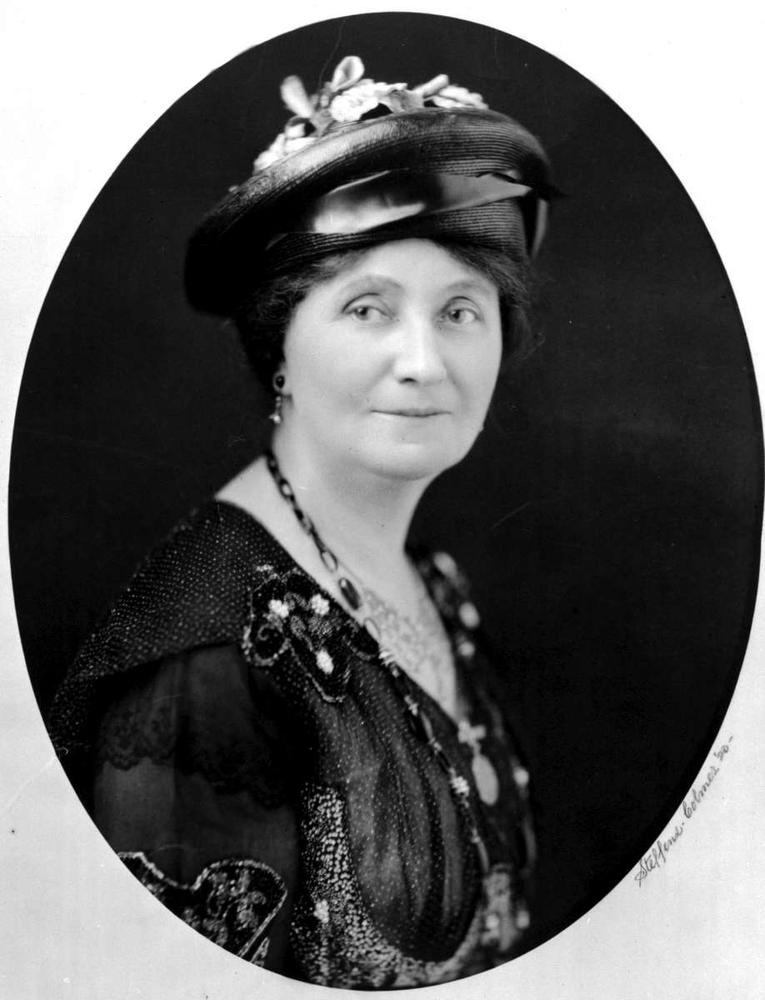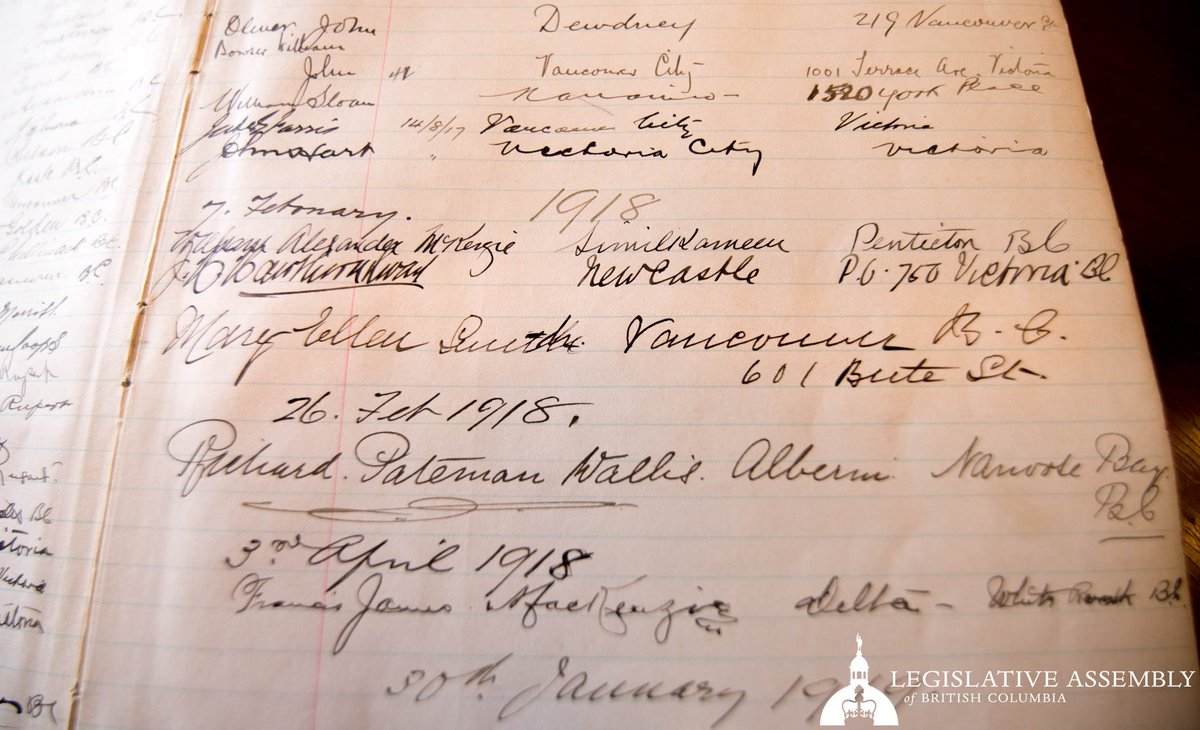Women's suffrage in 1917 made it possible for some women to move directly into provincial politics through election to the Legislative Assembly.
The first to do so was Mary Ellen Smith, who was elected as an independent during a 1918 by-election in the constituency of Vancouver City to replace her late husband. She later joined the Liberal Party and was appointed as a Cabinet minister in 1921, the first woman in the British Empire to hold such a position. She served as Minister without Portfolio from March 24, 1921, to November 19, 1921.
By circumstance, Mary Ellen Smith is also widely regarded to have been the first woman in the British Empire to preside over parliamentary proceedings from the Speaker's Chair. With the Deputy Speaker absent from the Chamber, Speaker Buckham called on Mary Ellen Smith to briefly preside over the budget debate on February 22, 1928. Upon assuming the responsibilities of the Speakership that day, Members quickly adapted to Mrs. Smith's presence and referred to her as "Madam Speaker" - a term still used today throughout the Commonwealth.
She ultimately lost her seat in 1928. Three other women followed her into the Legislative Assembly before World War II: Helen Douglas Smith in 1933, Dorothy Steeves in 1934, and Laura Jamieson in 1939.
Despite being the first woman elected to the Legislative Assembly, Mary Ellen Smith did not approach many of the issues present in B.C. with fairness or equality. She believed that B.C. should remain a part of the British Empire and that doing so meant that only European women would be responsible for populating the province with "ideal" citizens. While this led her to support legislation designed improve the welfare of women, she also introduced legislation that would ban Asian men working with European women over fears that they would have children that were not completely white. Likewise, Mary Ellen Smith was also noted for her position on sterilization, in which she feared that the genetic composition of B.C.'s European population could be improved by sterilizing those that were "feeble minded."


